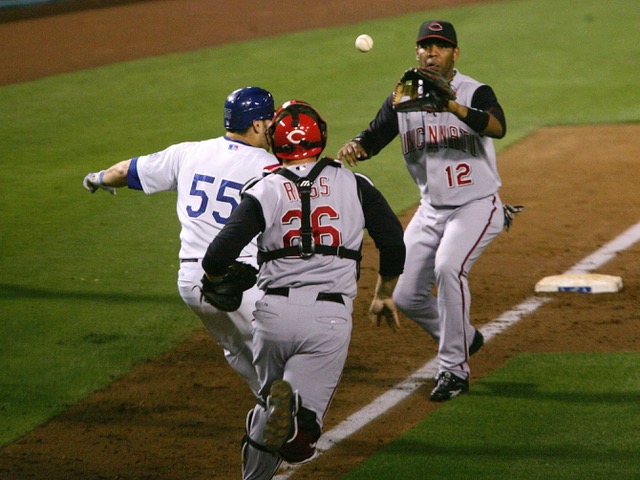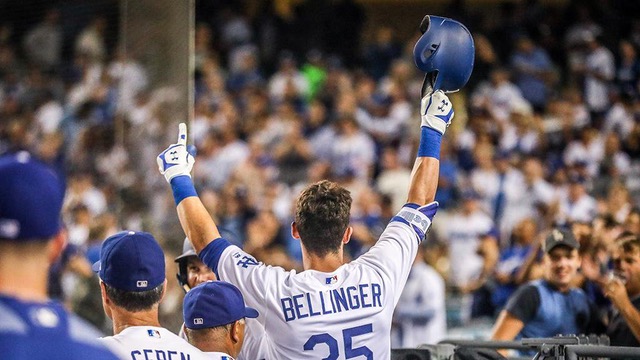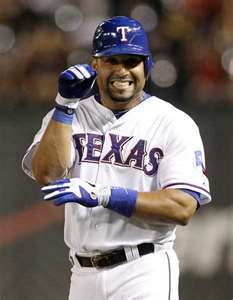“Hi everybody and a very pleasant good evening to you wherever you may be.”
Arguably the greatest 14 words any Dodger fan ever heard.
They were, of course, the words spoken by Hall of Fame broadcaster Vin Scully before every Dodgers broadcast, first on radio and later on television, as his pleasant and eloquent voice echoed through homes and neighborhoods throughout the state and even the country … and abroad.
Without question, Scully was – and still is – one of the most well-known and well-respected broadcasters in the sporting world, especially baseball as the voice of the Dodgers for 67 wonderful and memorable years.
Prior to his final broadcast on October 2, 2016, the veteran broadcaster constantly shared stories about the players that humanized them and took the dryness out of the statistical side of the game. The (now) 90-year-old retired broadcaster had the incredible ability of describing the action on the field that made it seem as if you were actually there witnessing it in person. Simply put, Vin Scully was the greatest of all time, or “GOAT,” as the kids today say.
Although no one will ever match up to Scully’s prowess, every broadcaster who has ever called a game live can relate with the universal language that is baseball slang.
Some of the terms and phrases are as old as the game itself and many are a little weird and don’t seem to have much of anything to do with baseball. But these timeless words and phrases connect generations of broadcasters with each other and with fans.
I’ll start off with some of the more well-known terms and move into the odd and lesser known ones:
Pickle – AKA: Rundown. As a casual fan, one might think I am talking about a cucumber that has been soaked in vinegar and other spices, but I’m actually referring to the generally entertaining event where a base runner gets stuck in between bases by the opposing team’s defense. Sometimes pickles are quick and only need one throw of the ball to get the runner out. Other times, the ball can fly back and forth across the field to different players covering different positions. As a scorekeeper, it can get messy trying to fill in the tiny box with the large amount of numbers for each time a new player has the ball. (This is my favorite one, can you tell?).

A pickle
(Photo courtesy of thebaseballjournal.com)
Can of Corn – This is generally used to describe and easy-to-catch fly ball in the outfield. The outfielder doesn’t really have to move around much to make the play and the ball just plops into the glove. This one goes back to grocery stores using hooks to get cans down from shelves and having them come down in similar fashion to the ball, nice and easy into their aprons.
Meatball – Staying on the food theme, this is generally a reference to a pitch right through the center of the strike zone. It’s the pitch players usually hit pretty easily and are also usually mistakes from the pitchers. For you dessert aficionados, the word Cookie is often used in place of Meatball.
Ducks on the Pond – Not real ducks, mind you. This is generally used when the bases are loaded (or Juiced) or two runners on base. The Texas Rangers really made this one stick back when they played in the 2011 World Series against the St. Louis Cardinals. Whenever they had runners on base, they would make a hand and arm gesture of a duck to hype each other up.
The Mendoza Line – Named after Mario Mendoza back in the mid-70s, the Mendoza Line is a .200 batting average (BA) baseline that player’s want to stay above. Mendoza’s average generally stayed in that region in the early years of his MLB career. A .200 BA isn’t ideal, but it’s not exactly bad either, as batters are generally shooting for around a .300 BA.
Tools of Ignorance – This is just a fancy name for a catcher’s equipment. Instead of giving the dictionary style definition, I’m going to use my own that loosely coincides with MLB’s official listing. The tools of ignorance are called such because a player who has the proper mindset and knowledge to play catcher willingly puts himself in such a place of danger that it requires three extra pieces of gear than that of the standard position player. Catchers have to worry about catching a ball coming at them at a rapid speed while also worrying about catching it, avoiding making any contact with the batter and also avoiding the batter’s bat on a rough back swing. This isn’t that well-known of an expression anymore, but it’s one of my favorites.
Curtain Call – When a player makes a game saving play or hits a massive home run at just the right time. It’s generally a phrase used in theater where the actors/actresses come out and take a bow after their show is over to soak in the appreciation from the audience. Baseball players to do this too to keep the energy up but also to thank and recognize the fans for showing their appreciation. They often remove their helmets and tip them towards the crowd in a show of thanks.

Curtain Call
(Photo courtesy of @MLB)
Painting the Corners / Paint the Black – This refers to a pitcher’s ability to throw a pitch that brushes into the strike zone on the very corners of home plate. The second version refers to the very thin, black edges of home plate that the ball would have to go over to be considered painting the corners.
Bush League – This refers to players or teams doing a lot of different things. It varies from bunting to break up no-hitters to poor sliding maneuvers to break up a double play – i.e., running out of the path of the base, sliding too early or too late. Basically, doing anything that goes against baseball’s unwritten and unspoken rules. It essentially references players in the majors doing things that minor leaguers might do because they don’t know any better because of their lack of experience. It’s not uncommon for one who employs Bush League play to get Drilled (intentionally hit by a pitch) or have his Tower Buzzed (a ball intentionally pitched dangerously close to a batter’s head) as a “reminder” that Bush League play is unacceptable.
The Ball Has Eyes / Grounder with Eyes / Ground Ball with Eyes, etc. – In short, it’s a grounder that, although weakly hit, it was hit well enough that the fielders couldn’t make a play on it to record an out. They say it has “eyes” which allows it to maneuver itself out of the grasp of the infielder. This one has been used in one form or another in at least two baseball movies, maybe more. Although I can’t say I have heard it recently though. I was watching A League of Their Own when I most recently heard it. It was also in Bull Durham as Crash Davis explains how a player’s batting average can be affected by just one extra grounder or bloop single a week.
Slang in baseball helps keep the games interesting. Instead of saying the same thing over and over again, it’s fun when a broadcaster, writer, etc. decides to change it up and drop in one of these phrases from time to time.
“Let’s play two!”




 October 25th, 2018 at 8:00 am
October 25th, 2018 at 8:00 am  by Lauren Jennings
by Lauren Jennings 

 Posted in
Posted in 

I often wondered why a high pop up that drops in for a hit is called a “Texas Leaguer”
You know, that popped up a few times while I was working on this, as did a few others that I didn’t get a chance to talk about. I believe I’ll have to make a sequel or two to this post in the near future to cover more of those, including Texas Leaguer!
“The term is said to have originated when Ollie Pickering, a popular Texas League player, made his major league debut and proceeded to run off a string of seven straight bloop hits, leading fans and writers to say, ‘Well, there goes Pickering with another one of those “Texas Leaguers.'”
There you have it.